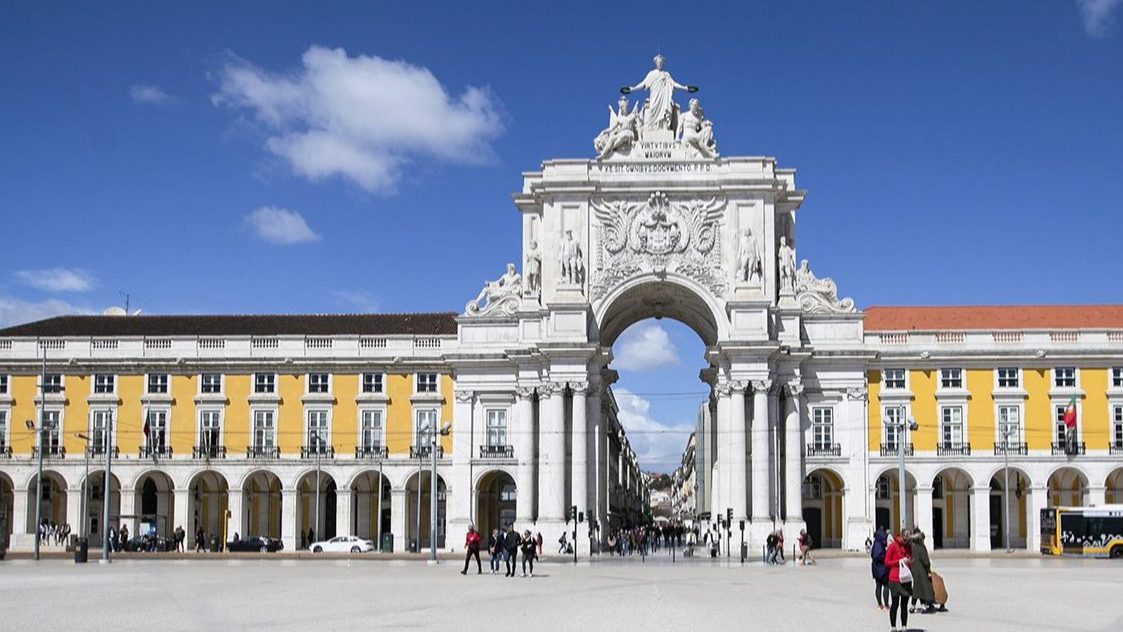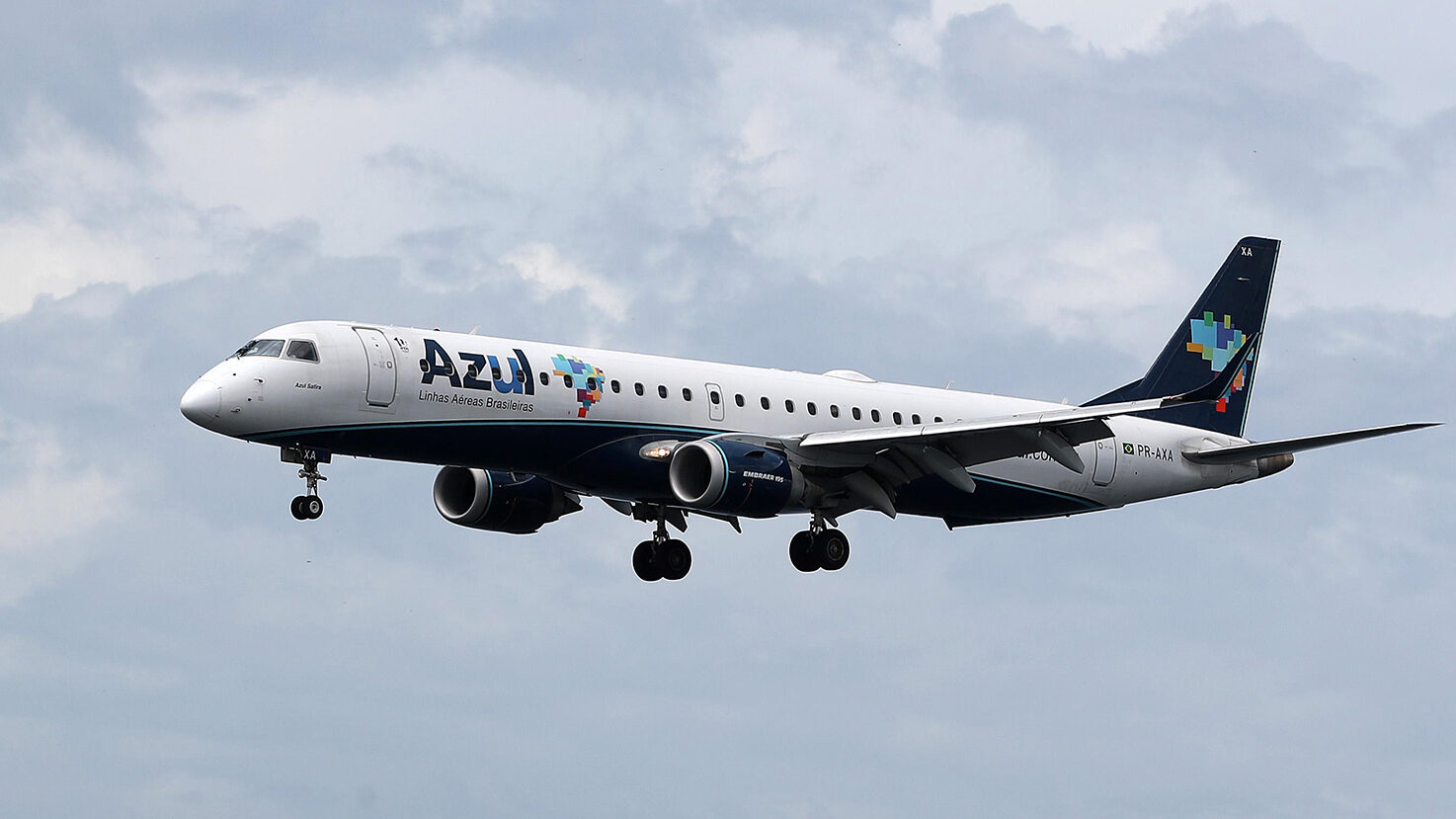Portugal gains 3,200 millionaires in the last year
The number of million-dollar fortunes grew by 1.9% in the country, while worldwide the increase was 1.2%. Portugal currently has around 175,000 millionaires.
Portugal recorded a 1.9% increase in the number of millionaires in 2024. From around 171,800 in 2023, the country grew to approximately 175,000 people with a net worth of more than one million dollars at the end of last year, according to the latest UBS “Global Wealth Report 2025”, published this Wednesday.
This growth translated into 3,200 more people joining the group of millionaires in the country over the course of 2024, consolidating a trend of increase in this restricted club in recent years, albeit this year at a slower pace than in previous years.
According to the Swiss bank’s calculations, the 175,000 Portuguese millionaires hold approximately 376 billion dollars in assets, which gives an average of around 2,149 million euros per millionaire. This compares with an average wealth per adult in Portugal of 163,933 dollars, while the median wealth is 81,353 dollars — a clear sign of the concentration of wealth in the upper tiers.
The UBS data also highlights that most Portuguese have a more conservative allocation of their assets when compared to other European countries, reflecting a tradition of investing in property.
The Swiss bank’s analysts reveal, for example, that financial assets accounted for 36.5% of Portuguese gross wealth in 2024, while non-financial assets — mainly real estate and land — accounted for 74.5% of the total, highlighting the weight of real estate in the portfolios of Portuguese families.
Indebtedness, meanwhile, remained relatively controlled at 10.9% of gross wealth, a figure close to that of other southern European countries such as Spain and Greece.
This asset mix has direct implications in the way wealth is accumulated and preserved in Portugal. The heavy weight of real estate makes wealth more sensitive to fluctuations in house prices and interest rate developments, while the lower exposure to financial assets limits the potential for appreciation in periods of strong stock market performance.
UBS reveals some data on inequality in Portugal, revealing that the country has a Gini coefficient of 0.61 in 2024 (slightly lower than the 2019 figures), which indicates a high level of wealth inequality in the European context, although much lower than in countries like Brazil, Russia or South Africa, which have a Gini coefficient above 0.8.
This figure means that the distribution of wealth is still fairly concentrated, with a significant proportion of assets held by a minority of the population. Despite this, the last decade has seen a slight downward trend in inequality, in line with the growth in median wealth, which has risen by more than 25% since the start of the decade, suggesting that wealth gains have been relatively more significant in the middle tiers of Portuguese society.
Mirror image of the world’s millionaires
For UBS, a millionaire is defined as a person with a net worth of more than one million US dollars (around 870,000 euros at the current exchange rate). In 2024, there were almost 60 million people globally with these conditions, who controlled more than 226 billion dollars, according to UBS calculations.
Last year alone, 680,000 new millionaires were added to this restricted club of fortunes worldwide. However, the report establishes different scales of wealth, with individuals with assets between one and five million dollars being classified as ‘Everyday Millionaires’.
This segment, which the report highlights as “growing but often overlooked”, has been growing significantly, currently representing around 52 million people worldwide and controlling approximately 107 trillion dollars in total wealth, “more than four times the amount they had in 2000, which is equivalent to more than 2.5 times in real terms”, say the UBS analysts.
According to UBS forecasts, both the number of millionaires and the wealth held by each will continue to grow over the next few years. This should happen both globally and in Portugal, and “this expansion will be led by the USA, as well as Greater China, Latin America and Oceania”, predict the bank’s analysts.
Worldwide, the number of millionaires is expected to continue to grow in most of the 56 markets analysed by UBS, with projections pointing to “5.34 million more people joining the ranks of millionaires by 2029, an increase of almost 9% compared to 2024”. In last year’s report, UBS analysts predicted that Portugal could reach 189.1 million millionaires by 2028. If confirmed, this will translate into an increase of 8.1% compared to the figures for 2024.
Internationally, the US remains the country with the largest absolute number of millionaires, concentrating almost four out of every ten millionaires. “The US, mainland China and France recorded the highest number of millionaires [in 2024], with the US accounting for almost 40% of global millionaires”, confirms the report, which adds that the United States added more than 379,000 new millionaires last year, “more than 1,000 a day”.
“It’s not surprising that the US has the largest number of millionaires, not least because it’s also the world’s largest economy, and I believe this will continue to be the case over the next decade”, said James Mazeau, an analyst at UBS, during the presentation of the report to journalists on Wednesday.
However, in terms of growth in the number of millionaires, the highlight was Turkey, which recorded an annual increase of 8%. The United Arab Emirates came second in this ranking, with an increase of 5.8%. These two countries reflect a particularly strong growth trend in emerging markets and economies in transformation.
Forces of wealth creation in 2024
The UBS analysts also reveal that the growth in world wealth in 2024 was driven mainly by the performance of the financial markets. According to the report, “worldwide, total financial wealth increased by 6.2% in dollar terms, while non-financial wealth grew by just 1.7% and total debt remained unchanged”.
This dynamic particularly benefited North American millionaires and millionaires exposed to the US capital market. “The particularly strong performance of the US financial markets in 2024, coupled with a stable currency, is what caused the region’s rather one-sided performance”, reads the report.
North America registered a wealth growth of 11.35%, much higher than the 2.85% of the Asia-Pacific region and the modest 0.44% of the EMEA (Europe, Middle East and Africa) region. “The US and the economies more anchored to the dollar have seen a greater increase in wealth over the last year as a result of the rise in the dollar”, emphasised Paul Donovan, chief economist at UBS Global Wealth Management, when presenting the report to journalists.
One of the main conclusions of the Swiss bank’s report is the large transfer of wealth that is expected over the next two to three decades. Globally, “over the next 20 to 25 years, more than 83 trillion dollars will be transferred, with around nine trillion moving horizontally between spouses, and 74 trillion moving between generations”, the report emphasises.
In Portugal, this transfer is particularly significant. UBS estimates that in the coming decades the equivalent of more than a quarter of national wealth will be transferred, including inter-generational and intra-generational transfers (between spouses). “In Spain, these transfers could amount to 17% of the country’s wealth, in Portugal to more than 26% and in Greece to 40%”, say the analysts in an analysis of southern European countries.
“Wealth is not just an economic measure — it is a social and political force. As we navigate the fourth industrial revolution and rising public debt, how wealth is distributed and transferred will shape opportunities, policies and progress”, emphasises Paul Donovan in the report.




